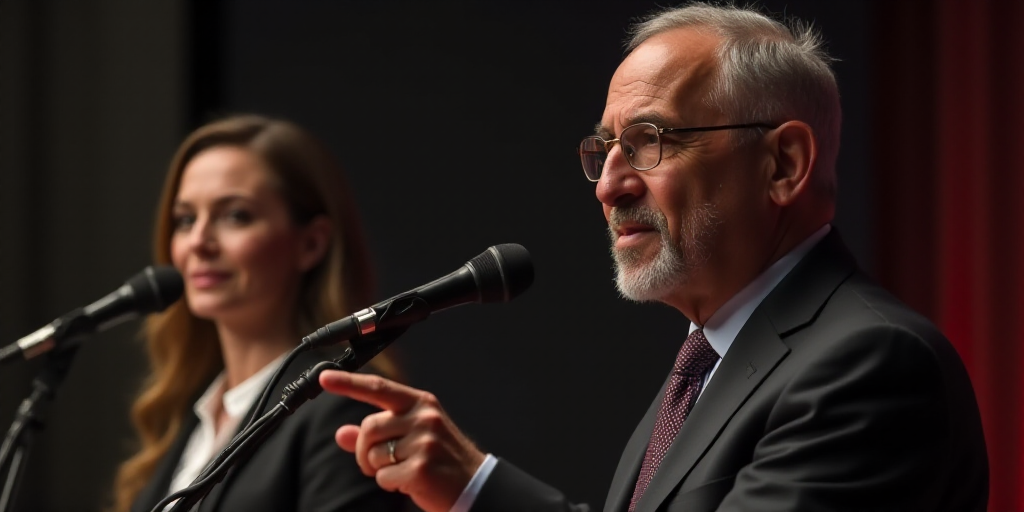Executive Power Expansion
In the recent history of the United States, no president has amassed as much power as Donald Trump. Since his return to the White House, he has extended executive influence over historically and constitutionally independent institutions, often with the tacit approval of those who should act as safeguards.
Experts’ Perspectives
Barbara Perry, a public affairs professor at the University of Virginia and an expert in US presidential history, described Trump’s attitude towards these institutions at the beginning of his second term as “terrifying.”
Wendy Schiller, a political science professor at Brown University, stated that Trump “seeks total and absolute power” and does not consider any US institution independent of his influence or authority.
Congressional Compliance
The Republican-controlled Congress, with its two chambers, is the best example of Trump’s influence. “What Trump wants, he gets,” explains Perry.
Nearly all Republican lawmakers have followed the president’s orders “out of fear that his re-election will be questioned,” according to Perry.
Some are tempted to deviate from the official line, but Trump has already threatened to back more loyal candidates in primaries, a move that would be nearly fatal for the majority’s chances.
As head of the legislative branch, Congress is supposed to act as a check on the president’s executive authority. However, Trump “has undermined this fundamental element,” asserts Perry.
Executive Orders
The 79-year-old president often bypasses Congress’s services, preferring to govern through executive orders at an unprecedented rate in US presidential history.
In just six months, Trump has signed 170 executive orders, more than his predecessor, Democrat Joe Biden, did in his entire term, according to the American Presidency Project at the University of California, Santa Barbara.
Attacks on Government Agencies
Trump has also attacked certain government agencies whose statutes typically ensure their independence. The Consumer Product Safety Commission (CPSC), responsible for ensuring product safety, is one such example.
In May, Trump dismissed three of the CPSC’s five directors, all appointed by Democratic presidents.
The decision was challenged in court, and a federal judge temporarily halted it a few weeks later.
The judiciary now appears to be one of the last bastions against Trump’s desire to expand his authority. However, federal judges’ ability to curtail executive power was seriously weakened at the end of June by a Supreme Court ruling that prevented them from issuing nationwide injunctions in most cases.
“Imperial Presidency”
In recent weeks, Trump has directed his anger at another institution: the US Federal Reserve (Fed).
The Fed’s independence is daily attacked by the Republican, who disapproves of the institution’s decisions and has even proposed removing its president, Jerome Powell. However, this dismissal is legally impossible without a serious offense.
In recent history, no US president has accumulated as much power as Trump, according to Perry, because all previous presidents “have been subject to control of their power by Congress, the Supreme Court, or internal party political fractures.”
The concept of an “imperial presidency,” once confined to academic circles, has become reality thanks to Trump, Schiller asserts.
Key Questions and Answers
- What is the extent of Trump’s influence on US institutions? Trump has significantly extended executive influence over historically and constitutionally independent institutions, often with the tacit approval of those who should act as safeguards.
- How has Congress responded to Trump’s influence? Nearly all Republican lawmakers have followed the president’s orders, fearing that challenging him might jeopardize his re-election.
- What is the significance of Trump’s executive orders? Trump has signed 170 executive orders in six months, more than his predecessor did in an entire term, demonstrating his preference for governing through orders rather than engaging with Congress.
- How has Trump affected government agencies? Trump has attacked certain agencies’ independence, such as the Consumer Product Safety Commission, by dismissing directors appointed by Democratic presidents.
- What is the current state of the judiciary’s ability to check executive power? The Supreme Court’s recent ruling has limited federal judges’ ability to curtail executive power, weakening one of the last safeguards against Trump’s expanding authority.
- What is the concept of an “imperial presidency”? This term, once confined to academic circles, describes the significant accumulation of power by a single president, undermining traditional checks and balances.






